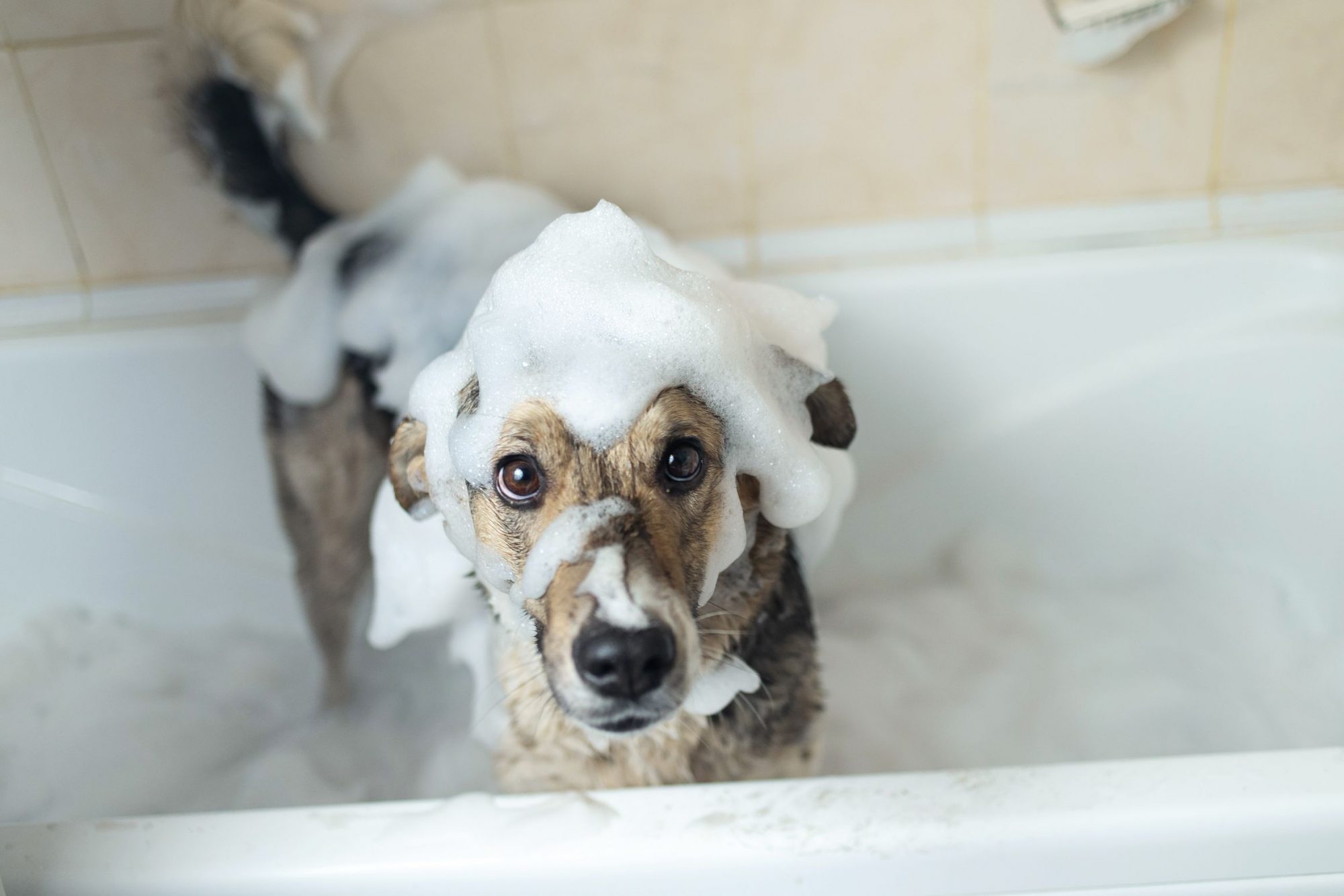Help! I Have a Senior Citizen Stinky Dog!

Dogs in general are not exactly known for their appealing aroma. They like to roll in dead things and raid the litter box, and it is only natural that they don’t always smell like roses. Bayside Animal Hospital has met our share of smelly pups, though, and we know that senior pets in particular often smell for reasons we can fix. Read on to learn what we know about helping the stinky dog smell better.
Stopping the Stinky Dog Smell at its Source
The secret to helping a stinky dog smell better is simple: identify the source of the odor. If a good bath doesn’t do the trick, it’s time to go hunting for the smell. Senior dogs often have trouble in a few areas, although bad odors can plague pets of all ages.
If there is an odor you can’t figure out, be sure to take a close look at some of the common culprits:
- Anal glands—These two notorious fluid-filled sacs that sit just inside the rectum are not known for smelling good. They express normally during bowel movements and sometimes a scared or nervous pet might also let loose. The oily secretions can really hold an odor, but a good fur cleaning should remove it. A persistent fishy smell near the rear end could indicate an anal gland infection or impaction, though.
- Digestive issues—When normal digestive function is upset due to diet change, parasites, or other systemic disease, things can get pretty smelly. Flatulence and abnormal stools can carry a bad odor.
- Ears—The ear canal is lined with skin that is prone to becoming inflamed and infected. When this occurs, it is not only uncomfortable but can also be pretty smelly.
- Mouth—Periodontal and other dental diseases can result in some awful dog breath. Older pets are more likely to have advanced dental disease.
- Skin—Smelly imbalances of the normal bacteria and yeast on the skin can occur secondary to allergic skin disease, deep skin folds, immune system problems, or mobility issues. Growths and masses may also create a place for skin infection or have necrotic areas with bad odor.
- Urinary tract—Infections of the urinary tract can result in strong, smelly urine. Other issues like incontinence or kidney disease can lead to urine dribbling and accumulating in the fur, which can carry an odor.
How We Can Help You
If you can’t find where your stinky dog is getting their aroma from (or if you can, but can’t seem to kick it), it is time to make an appointment to come in for a vet visit. Many chronic pet odors need some medical attention to fix and prevent future issues.
Whether it be a round of antibiotics for an infection, a dental cleaning procedure under anesthesia, or a game plan for chronic skin disease, we are here to help.
We can also help to prevent stinky dog odors at times during routine wellness care. Identifying arthritis issues, finding an early urinary tract infection on a wellness screening test, or doing a recommended maintenance dental cleaning can all help us keep ahead of bad smells..
We want you to be able to enjoy your pet as they age, not avoid them because they smell! Having a stinky dog doesn’t have to be the norm, we are here to help.


